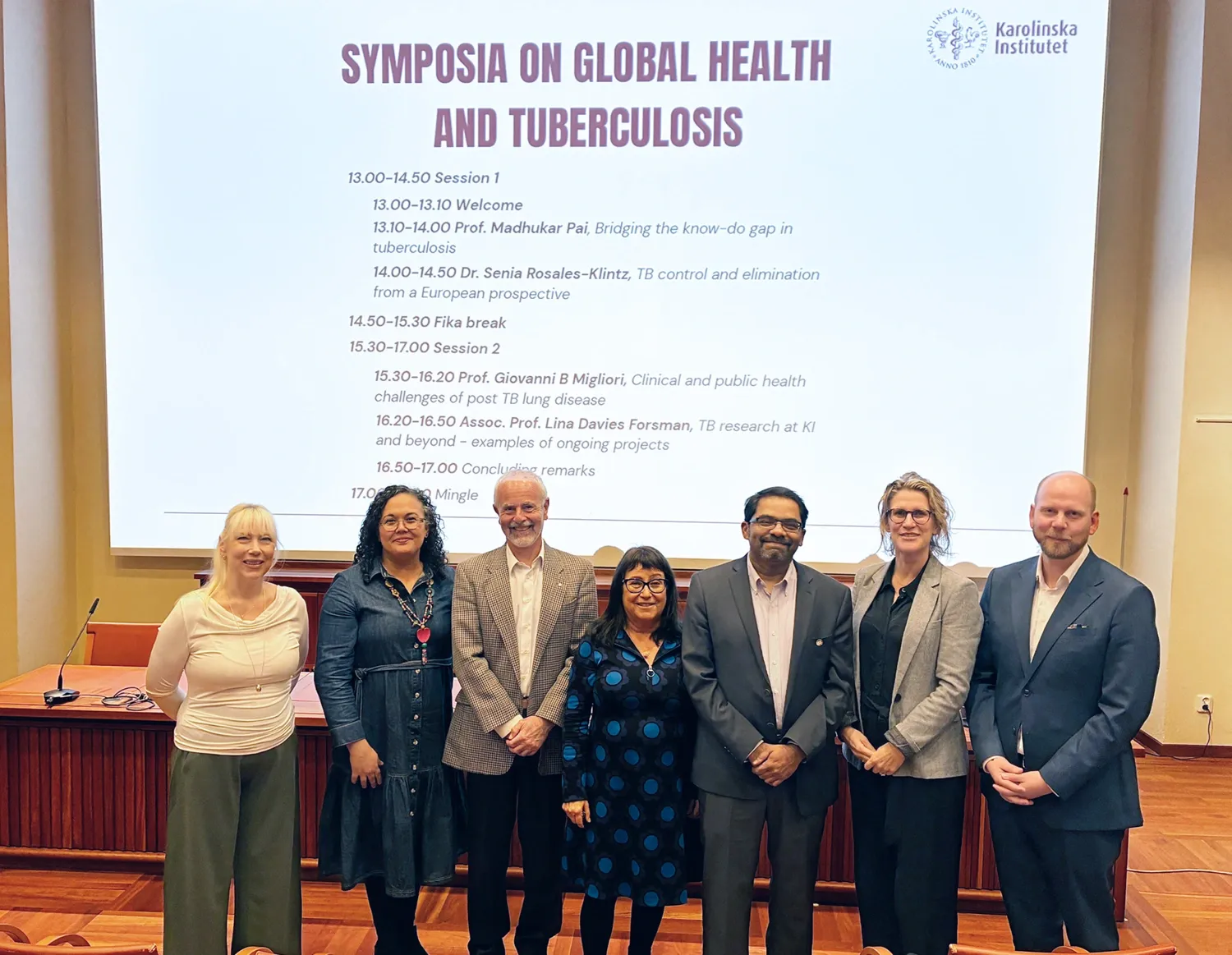Tuberculosis remains a global health issue affecting more than 10 million people every year. On October 20, leading international tuberculosis researchers gathered at the Nobel Forum to discuss how to reduce the remaining gaps in prevention, care, and research.
Although significant progress has been made in improving treatment outcomes, tuberculosis is still the infectious disease that kills most people every year. At the symposium Global Health and Tuberculosis, researchers from different parts of the world met to discuss current challenges and ongoing research. The symposium was organized by Karolinska Institutet's tuberculosis research network .
The event opened with Professor Madhukar Pai from McGill University in Canada, who highlighted the so-called "know-do" gap in tuberculosis (TB) management. What we know about the disease and what we do in practice differ, leading to continued failures in diagnosis, treatment, and prevention. TB care needs to become more person-centered, addressing both the psychological burden of the disease and the side effects of long-term antibiotic treatment. He also emphasized the importance of meaningfully including TB survivors in all aspects of research, which he argued is often missing in Western studies.
Dr. Senia Rosales-Klintz from the EU's disease control agency, ECDC, described how limited drug licenses within the EU result in unreasonably high treatment costs for individual countries. Combined with differences in healthcare systems between countries, this particularly affects migrants, who therefore do not have equal access to care across Europe, and in some cases may even have received better treatment in developing countries where tuberculosis is more prevalent.
Professor Giovanni B. Migliori at WHO's collaborating center for tuberculosis and lung diseases addressed the long-term consequences of post-TB lung disease and demonstrated how physical rehabilitation can significantly improve quality of life long after treatment programs have ended and patient contact has ceased.
The final speaker was Associate Professor Lina Davies Forsman from Karolinska Institutet (KI) and Karolinska University Hospital, who presented ongoing research collaborations between KI, Vietnam, and China.
The session concluded with a reminder of the theme: "Nothing about us, without us" - a call to ensure that the path toward global tuberculosis control is not defined solely by the Western world but built in partnership with TB survivors and people from high-burden communities, whose voices and experiences are crucial for lasting progress.







